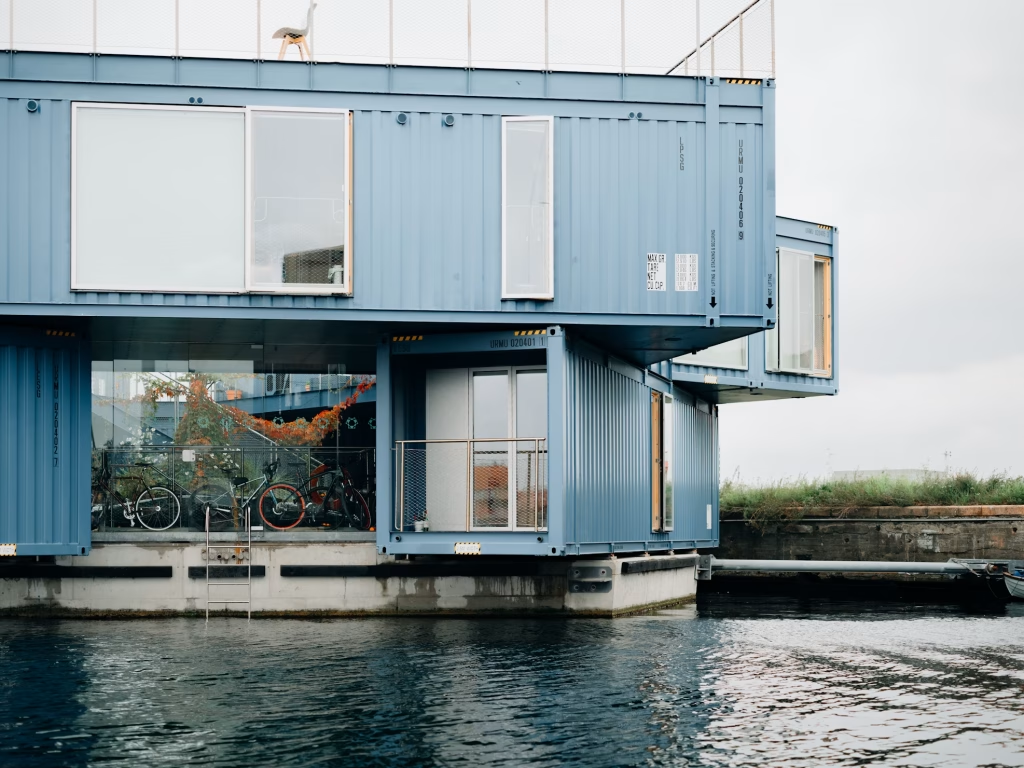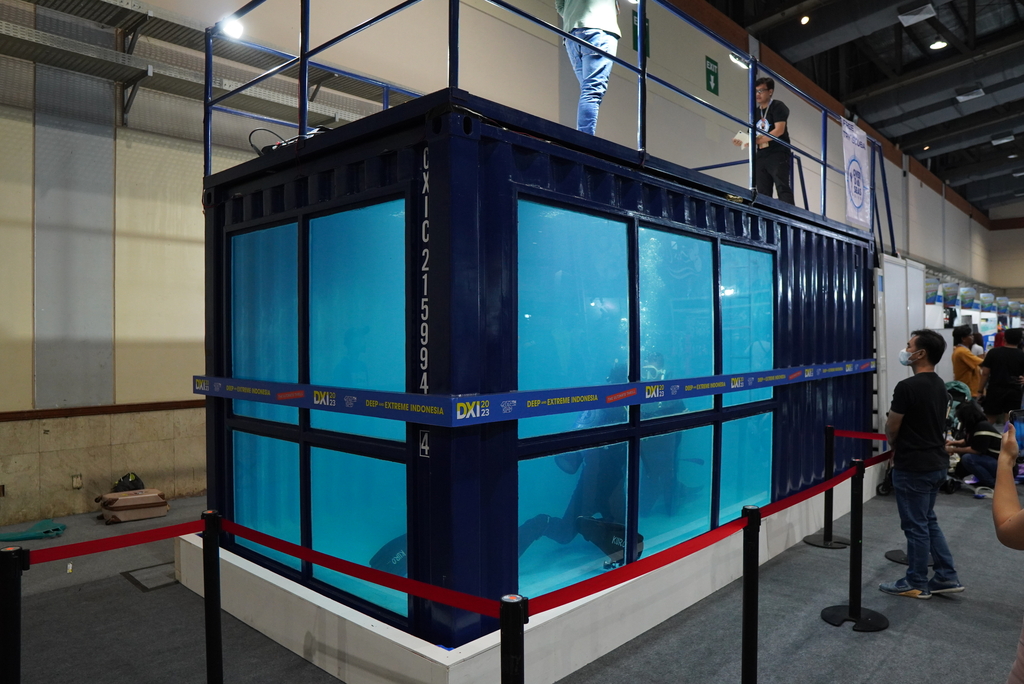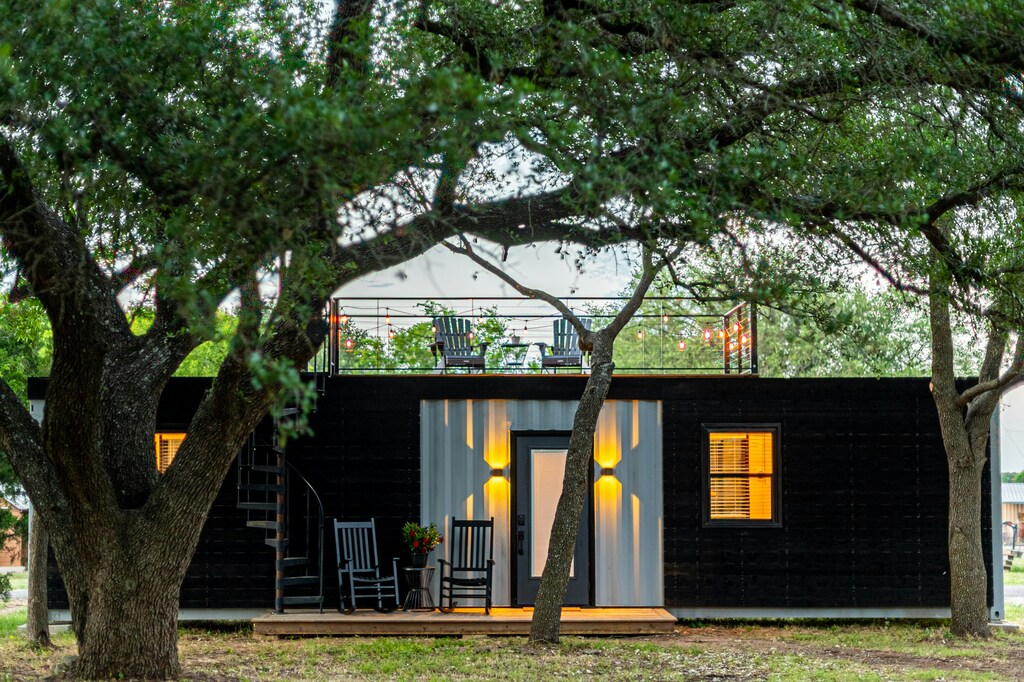Have you ever wondered a question like, “Can I put a shipping container on my property if I live in Texas?”
Many of you who live in Texas may wonder about that question when you are about to expand your house at an affordable price.
As a state that offers you almost everything, Texas has its own rural and city areas. Texas’s rural areas are usually more lenient.
In here, containers for storage or even housing are often allowed with minimal red tape.
Meanwhile, the city area is more likely to have strict zoning and building codes, which may require building permits, foundation inspections, and appearance standards.
Following the question of “Can I put a shipping container on my property if I live in Texas?”, read this article to find out the answer!
Contents
Check These Before Placing a Container

Zoning Regulations
Texas does not have statewide restrictions on shipping containers. However, its local jurisdictions, such as cities and counties, enforce their zoning laws.
Also, your property’s zoning classification (residential, commercial, industrial, agricultural) determines permissible uses.
For instance, in Jacksonville, TX, cargo containers are permitted as accessory storage only in specific zoning districts (J, K, L, M, and O).
In some cities, like Whitesboro, TX, shipping containers are allowed in residential districts only if the property is at least one acre in size, and only one container is permitted per acre.
HOA Rules
If your property is within an HOA (Homeowners’ Association), additional rules may apply. The HOA Guidelines may restrict or prohibit the placement of shipping containers to maintain neighborhood aesthetics.
Always review your HOA covenants and deed restrictions before proceeding.
Building Permits
You will need building permits if you’re modifying the container (e.g., electrical, plumbing, living space). For short-term applications, such as construction site storage, a temporary use permit may suffice.
However, if you’re converting the container into a permanent structure like a home or office, you will likely need:
- Building Permit to ensure compliance with structural and safety codes.
- Electrical/Plumbing Permits if installing such systems.
- Foundation Inspection to verify proper anchoring and support.
Foundation and Anchoring
If you’re converting a shipping container into a permanent structure (e.g., a home, office, or workshop), most Texas municipalities mandate an engineered foundation and anchoring system.
The container must be anchored to a permanent foundation designed by a licensed professional engineer to ensure stability and compliance with local building codes.
Meanwhile, anchoring methods, such as embedded bolts or tie-downs, must meet specific standards.
The International Building Code (IBC) specifies that foundation plates or sills should be bolted or anchored to the foundation with at least ½-inch diameter steel bolts or approved anchors.
For temporary uses like construction site storage, some jurisdictions may allow placement on gravel pads or concrete blocks without extensive anchoring.
However, even such placement varies, and it’s crucial to verify with local authorities.
Utility Connections
Installing electricity, plumbing, gas, or sewer connections to a shipping container typically requires separate permits.
These are distinct from the general building permit and ensure each utility system meets safety and code standards.
Therefore, before initiating any utility work, consult your local municipal or county building department to understand specific requirements and obtain necessary approvals.
For electrical installation, we recommend you to hire a licensed electrician as proper grounding and adherence to the National Electrical Code (NEC) are essential to prevent hazards.
Similarly, plumbing and gas line installations should be performed by licensed professionals to ensure safety.
Steps to Ensure Compliance
To ensure compliance when putting a shipping container on your property in Texas, follow these steps:
- Contact local authorities to understand specific zoning and permitting requirements.
- Determine your property’s zoning classification and associated regulations.
- Consult the HOA and Deed Documents to ensure no private restrictions exist that would prevent container placement.
- Apply for all required permits before placing or modifying a shipping container on your property.
Container Home Aspects that Fall Under Regulations
When putting a shipping container space in your house, you have to follow various housing regulations to ensure safety, habitability, and compliance with local building codes:
Accessibility Standards
If you use your shipping container home as a public facility or rent it out, you may need to meet accessibility standards under the Americans with Disabilities Act (ADA) for people with disabilities.
This includes ensuring wheelchair access, ramps, and accessible bathroom facilities.
Windows, Doors, and Natural Light
In a container home, windows must meet egress requirements or they must be large enough to allow occupants to exit in case of emergency.
This is particularly important for bedrooms and living areas.
Housing regulations often require that habitable rooms have a certain amount of natural light. This may influence the placement and size of windows in the container home.
Fire Safety
Container homes must comply with fire safety regulations, including materials for insulation, flooring, and interior finishes.
Some materials used in container homes, such as certain types of spray foam insulation, may be flammable unless treated with fire-resistant coatings.
Also, your container home must have proper egress windows and doors, and possibly a second exit in case of fire or other emergencies.
Foundation Requirements
Most container homes will require a proper foundation. The foundation needs to support the weight of the container and ensure it doesn’t shift, tilt, or become unstable.
Whether it is a concrete slab, pier foundation, or another type, it must meet stability and safety standards.
You need to design and install the foundation according to local codes. The foundation must typically be permitted and inspected as part of the overall building approval process.
Electrical and Wiring Codes
The electrical system in your shipping container home must comply with the National Electrical Code (NEC) or any state-specific regulations.
This includes the installation of wiring, outlets, light fixtures, circuit breakers, and more.
Energy Efficiency and Sustainability
Many local building codes include requirements for energy efficiency, such as insulation values, HVAC system requirements, and energy-saving materials.
You need to meet certain energy efficiency standards to ensure the home is comfortable and reduces its environmental impact.
Plumbing and Sewerage
Any plumbing system, whether for water supply, wastewater, or sewage, must adhere to local plumbing codes. This includes the installation of pipes, fixtures, water heaters, and septic systems.
Common Container Uses in Private Property

Tool Storage
Zoning laws determine where and how shipping containers can be used. In Jacksonville, cargo containers are permitted as accessory storage only in specific zoning districts (J, K, L, M, and O).
Meanwhile, in Whitesboro, residential properties must be at least one acre to install a shipping container, and only one container is allowed per acre.
Workshops or Offices
If you plan to operate a business from your home, it’s important to ensure that your activities comply with local zoning laws.
While Texas does not have a state-level ban on home-based businesses, local ordinances may have restrictions to prevent adverse impacts on neighbors.
In Greenville, a building permit is required for accessory buildings that are 100 sq. ft. or larger.
In Fort Worth, all permits may be applied for online, and applicants must be a registered building contractor or meet the requirements for a homestead permit.
Additional Bedroom
If you plan to convert a shipping container into a living space, like a bedroom, you will need to comply with building codes, such as the International Residential Code (IRC) or the International Building Code (IBC).
These codes cover aspects like structural integrity, insulation, plumbing, and electrical systems.
Adding a bedroom usually necessitates a building permit, especially if the project involves structural changes, electrical work, plumbing, or HVAC modifications.
In Austin, the minimum lot area for an accessory dwelling unit is 5,750 square feet, and the size of the additional dwelling is based on the zoning district.
Swimming Pool
Most Texas municipalities require a building permit for installing any type of pool, including shipping container pools.
This process typically involves submitting detailed plans for review to ensure compliance with local codes.
Local zoning laws may dictate where you can place your pool on your property. These regulations can govern aspects like setbacks from property lines, easements, and proximity to structures.
It’s essential to consult your city’s zoning ordinance to ensure your pool’s placement complies with local rules.
Conclusion
From the article above, the answer to “Can I put a shipping container on my property if I live in Texas?” is yes, YOU CAN!
You can put a shipping container on your property in Texas, but you must follow local regulations, which can vary by city, county, and zoning district.
Always check with your local building department or city hall before placing a container to avoid fines, removal orders, or permit violations.
To get a container size for your property needs, buy or rent from Tradecorp! With years of experience, Tradecorp is a reliable provider of sales, purchase, rental, and modification services.
Tradecorp also provides various types of containers, with a variety of sizes of 20’ or 40’ for cargo shipping, refrigerated, to modular containers.
Consult your modification needs according to your wishes and get the best container sales and rental price offers from Tradecorp by filling out this quote form!


